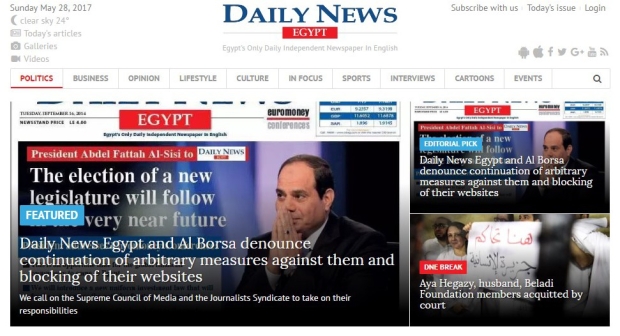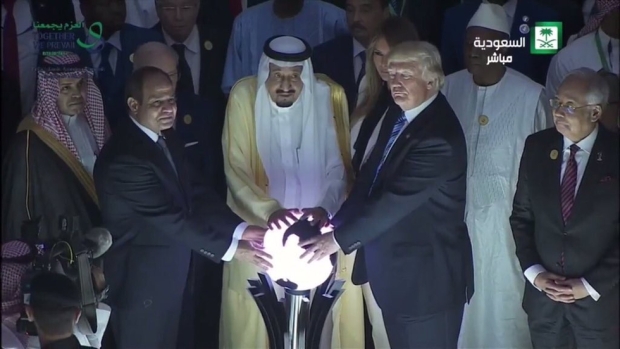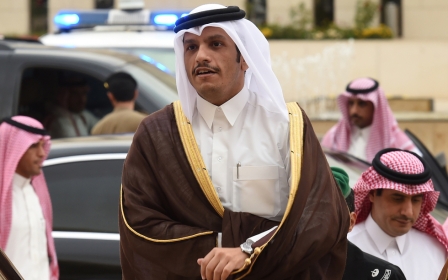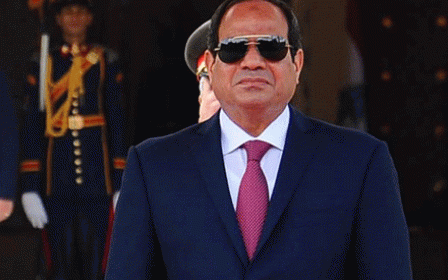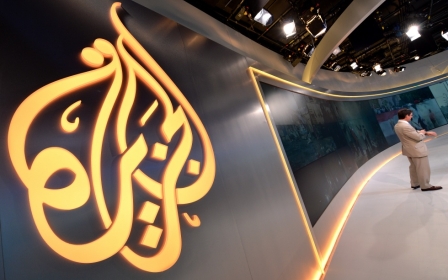Egypt's media ban: The audacity of ignorance
In an unprecedented move, the Egyptian government officially acknowledged blocking 21 websites for allegedly running content “that supports terrorism and extremism as well as publishing lies”.
The action itself was no surprise. Similar allegations were flung against tens of thousands of activists and critics, now withering in jail for months, even years, with no access to due process.
That the government is proudly admitting that it has taken active steps to curtail the media represents a significant escalation in the war against journalism
Yet the very fact that the government is proudly admitting that it has taken active steps to curtail the media represents a significant escalation in the war against journalism perpetrated by the current military dictatorship.
The list was not fully published, but the official Middle East News Agency said that it includes Qatari channel Al Jazeera, which is partially owned by the Qatari royal family.
Al Jazeera has been singled out as the enemy of the state since the overthrow of Egypt’s only democratically elected Islamist president Mohamed Morsi in 2013, whose leadership was backed by Qatar. The blockade has also targeted Asharq, Masr al Arabia, Al Shaab, Arabi 21, Rassd and Hamas Online.
The state builds a web of booby traps
While being overtly Islamist is no justification for blocking any website as long as it does not incite violence, such publications were not the only target.
Mada Masr, an independent, locally registered website which publishes in English and Arabic, was also blocked, even though it has no affiliations with nor sympathies for the outlawed Muslim Brotherhood. It is, however, vocal in its secular, left-leaning critical position against the current administration.
No prior judicial nor administrative authority order was given to Lina Attalah, the website’s editor, who told Reuters that the “blockade” proved the clear intention of the authorities to “crack down on critical media in ways that bypass the law”.
While this is partially true, a more insidious strategy has been at play since the 2013 military coup.
During the past few years, the state has been building its own web of legal and administrative booby traps to silence dissent and intimidate its critics.
The government can lawfully block access to websites by order of a prosecutor or investigating judge, or by order of the president during a state of emergency, as was declared on 9 April, following a heinous attack that targeted an Easter celebration by Coptic Christians.
Ironically, just days after the blocks, another terror attack targeted a busload of children on their way to visit a monastery. How could blocking websites have saved those innocent lives?
Furthermore, Article 29 of the controversial anti-terrorism legislation – which, incidentally and statistically, has failed miserably to combat terrorism – stipulates a five-year prison term for anyone who “establishes a telecommunications or internet site to promote ideas or beliefs that encourage committing terrorist acts or to broadcast [information] to mislead security agencies or influence the course of justice with regard to a crime of terrorism”.
A call from the 'minder'
Such elastic verbiage has always been the hallmark of the Egyptian government’s unethical engagement with its critics. It’s a situation I frequently wrangled with when I was an editor.
Between 2006 and 2012, I edited Daily News Egypt. The country’s deplorable press freedom record was a regular story on the front page of the newspaper. Behind the scenes, “having tea” with the head of the censorship authority, whose official title included a vague reference to “regulating print material in foreign languages”, eventually became part of my regular routine.
At one point, this involved taking a daily phone call from my official “minder” – a nice lady who was tasked with ringing at 5pm every day to get a list of the front page headlines. She took my word for it.
At the time, this signalled disaster. The paper relied entirely on print advertising and subscriptions, and the revenue from both would be jeopardised if the paper was removed.
Daily News Egypt was an English-language publication with a relatively small circulation, but this delicate danse macabre was a rite of passage for any journalism to exist in Egypt before 2011. The good news was that, despite the tens of thousands of followers and readers we had online and on social media, the gatekeepers were relatively unconcerned with what went on in the digital world.
Yes, it would become uncomfortable when state security officers would show up at the office and ask for reporters’ addresses, but I now look back and lament the good old days. At least there was some method to their madness. The red lines were clearly delineated. We knew when to cross them and how to navigate the murky, snake-infested jungle of officialdom whose sole purpose was to protect one man and his family.
Nature always finds a way
Today, there are no boundaries. In fully fledged Orwellian fashion, the ministry of truth spews nothing but lies. Sisi’s Egypt has flipped reality absolutely, creating both the conditions for terrorism and the justification for fighting it with no regard for human or civil rights.
It has become so extensive that the vast majority of Egyptians will probably be unfazed by this move. They’ll probably even support it.
The very idea of blocking a website in this day and age reflects the colossal ignorance of a colossally egotistical head of state still wallowing in long-deceased Nasser-era notions of thought control
And why not if a leading official from Egypt's National Telecom Regulatory Authority, when asked about the blockage, publicly stated: "So what if it is true? It should not be a problem."
The surreal image that comes to mind is that of Sisi, Saudi’s King Salman and US President Donald Trump with their hands clasped on the glowing orb during the official inauguration of Saudi Arabia’s Global Centre for Combating Extremist Ideology.
The tragi-comic irony of those three coming together to start “an organisation dedicated to monitoring propaganda from ISIS, al-Qaeda, and similar groups” can only be lost on those who have no idea about these men’s disastrous relationship with the media and their unique roles in fuelling extremism.
It is no coincidence that Cairo’s website blocks were announced just days after that meeting and, in typical Egyptian style, it overreached. The problem isn't only that blocking liberal outlets like Mada Masr is self-conscious at best and counter-intuitive at worst.
So unless Egypt finds a way to switch off the internet, such theatrics will be short-lived and likely do more harm than good. After all, the events of 2011 showed the regime that happens when you block communication. Nature always finds a way.
- Rania Al Malky is the former editor-in-chief of Daily News Egypt (2006-2012), which was the local publishing partner of the International Herald Tribune. She is currently is a freelance contributor for various publications.
The views expressed in this article belong to the author and do not necessarily reflect the editorial policy of Middle East Eye.
Photo: Egyptian President Abdel Fattah al-Sisi gives an address in Cairo on 26 May 2017 (Reuters/Government handout)
New MEE newsletter: Jerusalem Dispatch
Sign up to get the latest insights and analysis on Israel-Palestine, alongside Turkey Unpacked and other MEE newsletters
Middle East Eye delivers independent and unrivalled coverage and analysis of the Middle East, North Africa and beyond. To learn more about republishing this content and the associated fees, please fill out this form. More about MEE can be found here.



